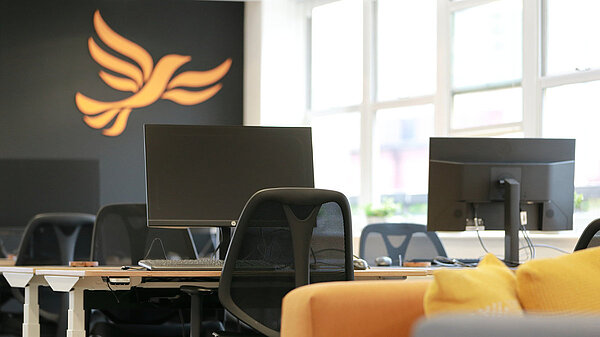Conservative MPs vote for stealth tax cover up
EMBARGO: FOR IMMEDIATE RELEASE
- 285 MPs vote down an amendment requiring government to write to every person hit by “stealth taxes”
Conservative MPs have been accused of a “stealth tax cover up,” after they voted down an amendment that would have informed people about how much the government is hiking their taxes.
The Liberal Democrat amendment would have required HMRC to write to every taxpayer hit by the freeze in income tax thresholds, spelling out exactly how much extra tax they will be paying and whether they've been dragged into a higher rate.
317 Conservative MPs backed the stealth tax last week (Tuesday 22nd November) and this afternoon 285 MPs voted to conceal these tax hikes from the public.
These taxes are set to cost taxpayers a whopping £26 billion a year by 2027-28, or a hit of over £1,100 for a family of two taxpayers on an average salary of £32,300. Around six million people are forecast to be dragged into a higher tax band.
Liberal Democrat Treasury Spokesperson Sarah Olney MP said:
“Conservative MPs have voted for a shameful stealth tax cover up.
“They have chosen to keep hard-working families in the dark about the unfair and unaffordable tax hikes they will soon be facing. Our amendment would have ensured that families are fully informed of increases to their bills, but this Conservative Government said no.
“People have had enough of being made to pay more for significantly less under this government, and seeing their taxes spiral while health services crumble. The slippery and evasive handling of this tax hike by Conservative MPs only adds insult to injury.
“They should hang their heads in shame for the financial turmoil they have caused. The public won’t forgive them for trying to hide the true impact of these painful tax rises.”
ENDS
Notes to Editor
317 Conservative MPs voted for the freezing of income tax thresholds in Parliament on 22nd November. See full details of how MPs voted here.
Full copy of the text of the Liberal Democrat amendment, tabled by Sarah Olney MP.
Clause 5, page 4, line 6, at end add—
(5) HMRC must contact every individual affected by the provisions of this section to inform them whether, as a result of the provisions of this section—
(a) they have become liable to pay the basic rate of income tax (when they were not previously so liable);
(b) they have become liable to pay the higher rate of income tax (when they were not previously so liable); and
(c) how much additional income tax they will pay as a result of the change.
Member’s explanatory statement
OBR forecast of people dragged into higher tax bands; money raised by 2028; and the real-terms level of the personal allowance in page 33 of the Economic and Fiscal Outlook
Freeze by 2028 | |||
Cost to basic and higher rate taxpayer of income tax thresholds not having been uprated from 2023-24 to 2027-28 | |||
£14,270-£50,270 | |||
Personal allowance | Would've been | Frozen at | Basic rate hit (cumul) |
2027-28 | £15,400 | £12,570 | £566 |
OBR inflation forecasts | |
2023Q3 | 6.9% |
2024Q3 | -0.2% |
2025Q3 | -1.1% |
2026Q3 | 0.9% |
Following the vote, the Liberal Democrats are launching a campaign in marginal ‘Blue Wall’ seats, with digital ads and leaflets attacking the tax hikes by stealth. This campaign is designed to expose Conservative MPs for attempting to “cover up” the stealth taxes they are responsible for.
The Office of Budget Responsibility (OBR) has forecast it will drag around six million people into a higher tax band, as salaries rise to match inflation while thresholds stay frozen. 3.2 million will be dragged into paying basic rate tax and 2.6 million will be pulled into higher rate tax.
The OBR also found the stealth tax will take the real value of the personal allowance in 2027-28 back to its level in 2013-14, wiping out years of tax cuts for low and middle income earners brought in by the Liberal Democrats in government.
According to the ONS, average weekly earnings are currently £621, or £32,292 a year.
Using the OBR’s inflation forecasts we have calculated what the income tax Personal Allowance and Higher Rate threshold would be each year, if it weren’t for the Income Tax threshold freeze. Based on that, we can calculate that a basic rate taxpayer in 2028 will pay £566 extra compared to a scenario where the personal allowance had been up-rated in line with inflation, or £1,132 for two basic rate taxpayers on an average salary.
Income tax thresholds are normally uprated each financial year in line with the CPI inflation figure of the previous September. According to the OBR Economy Supplementary Tables, Table 1.7, inflation in Q3 (September) in subsequent years will be as follows. We have assumed that in years of negative inflation, thresholds would remain unchanged.

